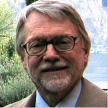Richard P. Feynman Quotes - Page 11

Richard P. Feynman, Robert B. Leighton, Matthew Sands (2015). “The Feynman Lectures on Physics, Vol. II: The New Millennium Edition: Mainly Electromagnetism and Matter”, p.679, Basic Books
Richard P. Feynman (2015). “The Quotable Feynman”, p.128, Princeton University Press
Richard P. Feynman (2015). “The Quotable Feynman”, p.76, Princeton University Press
I'm trying to find out NOT how Nature could be, but how Nature IS.
Richard P. Feynman (2015). “The Quotable Feynman”, p.69, Princeton University Press
Richard P. Feynman (2008). “Perfectly Reasonable Deviations from the Beaten Track: The Letters of Richard P. Feynman”, p.32, Hachette UK
I am not interested in what today's mathematicians find interesting.
Richard P. Feynman (2015). “The Quotable Feynman”, p.232, Princeton University Press
Richard P. Feynman (2014). “QED: The Strange Theory of Light and Matter”, p.17, Princeton University Press
Richard P. Feynman (2015). “The Quotable Feynman”, p.126, Princeton University Press
"Surely You're Joking, Mr. Feynman!: Adventures of a Curious Character". Book by Ralph Leighton and Richard R. Feynman, 1985.
Richard P. Feynman (2015). “The Quotable Feynman”, p.119, Princeton University Press
Richard P. Feynman, Robert B. Leighton, Matthew Sands (2015). “The Feynman Lectures on Physics, Vol. III: The New Millennium Edition: Quantum Mechanics”, p.307, Basic Books
"The Meaning of It All: Thoughts of a Citizen Scientist (lecture II: "The Uncertainty of Values")". Book by Richard P. Feynman, 1998.
Richard P. Feynman (2015). “The Quotable Feynman”, p.130, Princeton University Press
Richard P Feynman (2014). “Surely You're Joking Mr Feynman: Adventures of a Curious Character as Told to Ralph Leighton”, p.166, Random House
Richard P. Feynman (2015). “The Quotable Feynman”, p.161, Princeton University Press
It is our responsibility to leave the people of the future a free hand.
"What Do You Care What Other People Think". Book by Richard P. Feynman, 1988.






